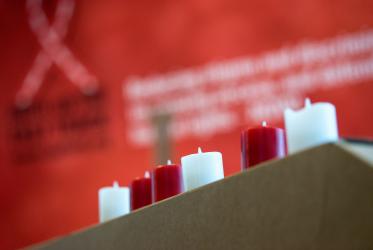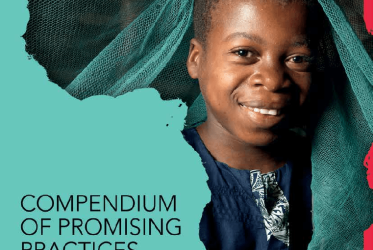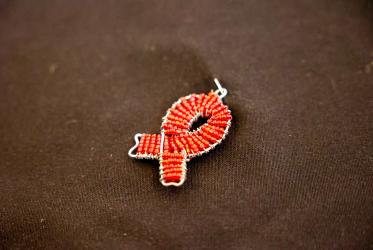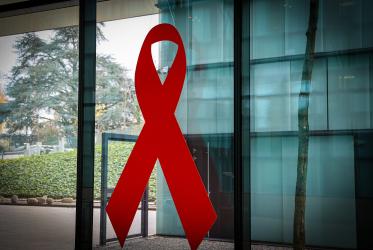The message was based on Romans 8: 32-35, 37-39
If God is for us, who is against us? He who did not withhold his own Son, but gave him up for all of us, will he not with him also give us everything else? Who will bring any charge against God’s elect? It is God who justifies. Who is to condemn? It is Christ Jesus, who died, yes, who was raised, who is at the right hand of God, who indeed intercedes for us. Who will separate us from the love of Christ? Will hardship, or distress, or persecution, or famine, or nakedness, or peril, or sword?….
No, in all these things we are more than conquerors through him who loved us. For I am convinced that neither death, nor life, nor angels, nor rulers, nor things present, nor things to come, nor powers, nor height, nor depth, nor anything else in all creation, will be able to separate us from the love of God in Christ Jesus our Lord.
Dear sisters and brothers,
Though all nations have committed to end AIDS by 2030, the UNAIDS report warns us our journey ahead to end AIDS is becoming more challenged, and if decisive and bold steps are not taken to overcome entrenched inequalities, we will fail.
Inequality and injustice are two faces of the same coin. If we are to remove inequality, we have to overcome injustice. Both the pandemics—HIV and COVID-19—clearly impact the most vulnerable communities—the same people who face the greatest injustice.
The words of assurance we read from Romans 8 clearly tell us that each child of God is entitled to the love of God. One of the questions that is posed to us is, how does this love translate to in the life of each girl, woman, and member of a marginalised community in the context of the HIV and COVID-19 pandemics? If an adolescent girl experiences the love of God—unhindered by the manipulations of our broken society—will she be so vulnerable to succumb to HIV? We can ask the same question in the context of each vulnerable child of God. Their inability to experience the love of God is because of the injustice that is so widespread. Injustice that perpetuates inequality.
As followers of Jesus, we are called to remove barriers that hinder the flow of the love of God, to each child of God. We are called to strive to overcome injustice and inequality, so that all will experience the embracing love of God. Ephesians 5:2 reminds us to live in love, as Christ loved us and gave himself up for us. We are called to walk in love and in humility and with grace, to see the presence of God in the others and not to judge and justify injustice and inequality. The reading from Romans 8 is a forceful expression of our faith and hope: In Jesus, God has given us everything and, in the future, nothing can separate us from God. May this commitment enable us to leave God in control and work hard to overcome injustice and inequality with our unconditional and inclusive love and compassion for others.
In our Lord’s Prayer, we invoke the reign of God—thy kingdom come! Here and now! We are not asking God to take us to heaven. We are called to strive to bring heaven on earth. With love, to overcome injustice and inequality, to keep on track to end AIDS by 2030.
Reflection questions:
If each child of God is entitled to the love of God, how does this love translate to the life of each girl, woman, and each member of a marginalised community in the context of the HIV and COVID-19 pandemics?
Can one experience the love of God without justice?
What barriers hinder a girl, woman, and member of a marginalised community to experience the love of God in the context of the HIV and COVID-19 pandemics?
What specific action and advocacy can we take to ensure that love and justice can flow unhindered and overcome inequalities?








